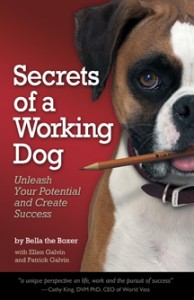 In January my cousins gave me a birthday gift: a $50 gift certificate for the Seattle Farmers Market. It was a carefully selected gift. They knew that I’ve shopped at the West Seattle Farmers Market for years, take friends there, and encourage others to go.
In January my cousins gave me a birthday gift: a $50 gift certificate for the Seattle Farmers Market. It was a carefully selected gift. They knew that I’ve shopped at the West Seattle Farmers Market for years, take friends there, and encourage others to go.
For me it’s also a bit retro: I grew up in a small town, and buying produce and meats from your neighbors was simply what you did. Good business for them. Good food for you.
So I was taken aback yesterday when I cashed in my gift certificate at the market booth and then tried to spend my $5 tokens around the market.
Turns out, the farmers don’t really understand the tokens. Plus (or perhaps I should honestly say, worse) the tokens are also given in exchange for food stamps, and that is apparently all they are really known for by the farmers. I have to admit, when the booth attendant told me that, I hesitated.
We are all proud: this is a fact of life. We aren’t proud about being proud, but we are, anyway. I am not the only one who looks the other way when the person in front of me at the grocery store hands over food coupons instead of money. First of all, it’s none of my business. Second, it’s sad that someone needs to rely on food stamps: I’m glad food stamps are there and I hope to never be in the position to need them. Third, I always just figured people were embarrassed by needing the coupons, and, of course, it might be contagious.
Sound human? (You know it is.)
So when I was handed the tokens and told that, I thought, ‘Wow, this might be a lesson I’m not in the mood for today.’ Sadly, it was.
One farmer tried to refuse the tokens, and then argued with me about giving me change for one. Granted, the market’s organizers have done a poor job of informing the farmers that the tokens are real money: at the end of the day, they turn in each $5 token for $5 cash. But this particular farmer took one look at the token and glanced at me with a look that combined both contempt for me and superiority for her. I started to explain it was a gift, not a food stamp, and then I thought, really, this is my lesson, too, and shut up.
Well, almost. I looked this farmer in the eye and said, “Give me back the token and I’ll give you real money.” Startled, she hesitated, kept it, and gave me change. While blushing.
I owed the second farmer $17, and gave him three tokens and change (I catch on eventually). He did a double-take when he saw the tokens, wouldn’t meet my eyes after that, and hustled me off.
The third farmer was someone I personally like, even though we don’t know each other’s name. She remembers what I like and even brings a few items just for me (okay, probably a few other people, too) when she doesn’t have enough of it ready to sell in quantity. While she took the tokens in stride, I felt compelled to mention that they were a gift, so boo on me.
That was my lesson yesterday. I had to laugh about it later. I’d just spent a fortune on veterinary care for my aging, ill dog, and like most of us these days, I was feeling the pinch. But what pinched me here was attitude, and not just the farmers’.
We don’t survive as a species, let alone a culture, unless we reach out to take care of each other. Food stamps are one way we do that in our system while keeping our hands clean and our hearts inactivated: we can do good without going to any real effort, including feeling it.
Yesterday I had to feel it. Joy because I feel rich every Sunday when my fridge is stocked with life-giving food. Surprise (and embarrassment) at how I felt when I realized someone might think I was using food stamps (which, I discovered, makes you feel inadequate on many levels that count far more than the financial). Shame for even thinking that. Humor at being human. Satisfaction in rising above my own, well, pettiness.
And, really, gratitude for a perfect gift from people who truly love me: the food, yes, but the unexpected gift of compassion for all of us who are just trying to get by, and somehow manage to do it together. Even when it hurts.
Yes, I’ll call it like it was: an unexpected gift of grace, obviously needed, and, ultimately, well received.
So how would you feel in that situation? And why?
© 2013 Robyn M Fritz
 Barnecut’s Shell has been in West Seattle a whole lot longer than I have, but even that’s a long time. Dick Barnecut and his son, Andy, have been taking care of my cars since I moved to West Seattle in 1988. But on July 1, 2013, they will be closing their doors forever.
Barnecut’s Shell has been in West Seattle a whole lot longer than I have, but even that’s a long time. Dick Barnecut and his son, Andy, have been taking care of my cars since I moved to West Seattle in 1988. But on July 1, 2013, they will be closing their doors forever. What if you had an amazing ability, you stepped up and learned how to use it, and one day it all came together in a perfect moment? I saw that happen yesterday with a friend who is also one of my intuitive students.
What if you had an amazing ability, you stepped up and learned how to use it, and one day it all came together in a perfect moment? I saw that happen yesterday with a friend who is also one of my intuitive students.





 There is a thing called the
There is a thing called the  All the beings who are part of the Alchemy West Committee have something to say about the business. They also join in: if it weren’t for them, the classes I teach on how to develop your intuition would be like everyone else’s, instead of real opportunities for anyone with an open mind to learn how to tap their intuition and their connection with all life by speaking with dragons, a rock-and-roll goddess, cars, buildings, trees, crystals, wind, all the beings who show up to explore life in harmony with, well, all life.
All the beings who are part of the Alchemy West Committee have something to say about the business. They also join in: if it weren’t for them, the classes I teach on how to develop your intuition would be like everyone else’s, instead of real opportunities for anyone with an open mind to learn how to tap their intuition and their connection with all life by speaking with dragons, a rock-and-roll goddess, cars, buildings, trees, crystals, wind, all the beings who show up to explore life in harmony with, well, all life. The good thing about the Alchemy West Committee? We take ourselves seriously. No matter what.
The good thing about the Alchemy West Committee? We take ourselves seriously. No matter what.![GreenVoteYes[1]](http://www.alchemywestinc.com/blog/wp-content/uploads/2011/09/GreenVoteYes1.jpg) I just bought dishes from Crate & Barrel. It’s not the first time I’ve purchased from them. It sure has heck won’t be the last.
I just bought dishes from Crate & Barrel. It’s not the first time I’ve purchased from them. It sure has heck won’t be the last.